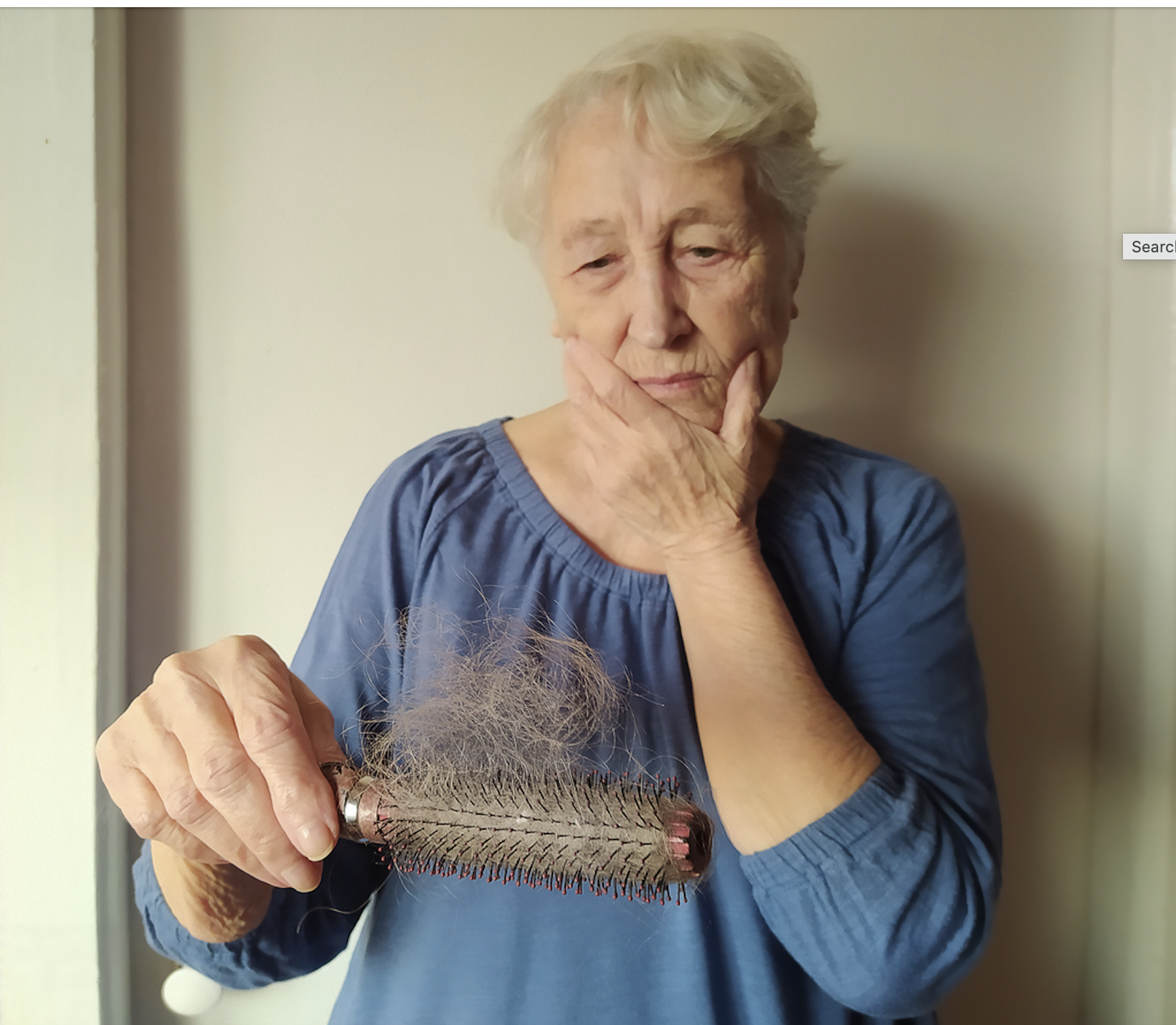Reverse Course: Possible Strategies to Turn Around Hair Loss
November 15, 2023

One thing is certain. No matter where you live, or what your background or political perspective is, we certainly all live in stressful times. And as you likely know, stress can really do a number on your physical and mental health. Stress can even take a toll on your hair, a problem area most of us contend with as we enter our later years. Whether it’s the shock of a particular event, such as the death of a loved one, or the more everyday stresses that we all encounter (perhaps dealing with the challenges of an aging parent), research shows that the cortisol released into your body as a result can disrupt hair growth and even lead to excessive hair shedding. In fact, such stress can lead to the loss of up to ⅓ of your hair, though that volume loss is usually short-term.
But short-term hair loss isn’t the only type of hair loss that older adults have to face. Aging itself can be the cause of hair thinning and hair loss (along with genetics, environmental exposures, and medications) and whether that can be successfully addressed and even reversed is under study. According to Dr. Neera Nathan, a researcher at Mass General Hospital and a faculty member of the Harvard Medical School, there are strategies to address your thinning hair and potentially even reverse it. Appearing on the podcast Clean Beauty School, Dr. Nathan underscores that just like all cells in the body, hair follicle cells eventually decline and thus are unable to grow hair as well as they previously did. Her recommendations for fighting back and improving the volume of your hair? She, too, points to chronic stress as something that can shorten the hair growth cycle and eventually even turn off your hair follicles. So turn down the stress volume in your head through such stress management techniques as meditation. She also emphasizes the importance of a balanced diet, pointing out that hair is mostly made up of protein, so ensuring you are eating enough protein each day is critical for hair support (and also critical as you age more generally). Finally, Dr. Nathan urges you to dial back the heat on your hair, avoid irritating chemicals or fragrances, and consider topical treatments directly applied to your scalp, including such natural ingredients as caffeine or turmeric. There are, of course, other promising treatments out there to address hair thinning, hair loss, and even balding. These include such interventions as platelet plasma injections, laser hair caps, and such medications as minoxidil, which now comes in oral doses rather than being applied to the scalp.
However, not every treatment or strategy is successful for every man or woman, and at some point, many of us will face the reality that our thinning or lost hair will never return to its former volume. That takes a tremendous amount of resilience and courage to admit, especially if your appearance has been important to your self-confidence. For one woman’s story of coming to terms with permanent hair loss, open your arms wide and embrace her narrative here.







